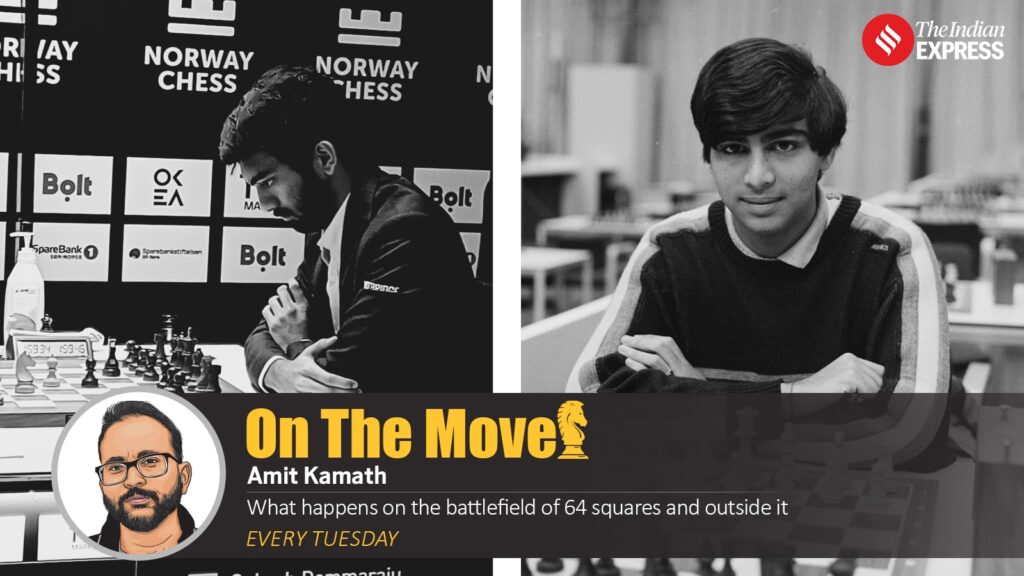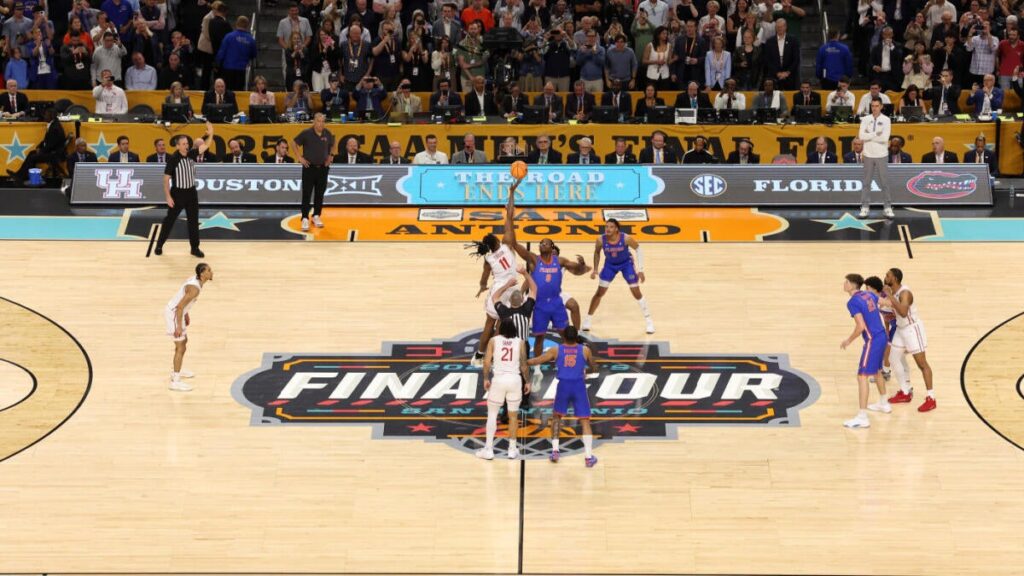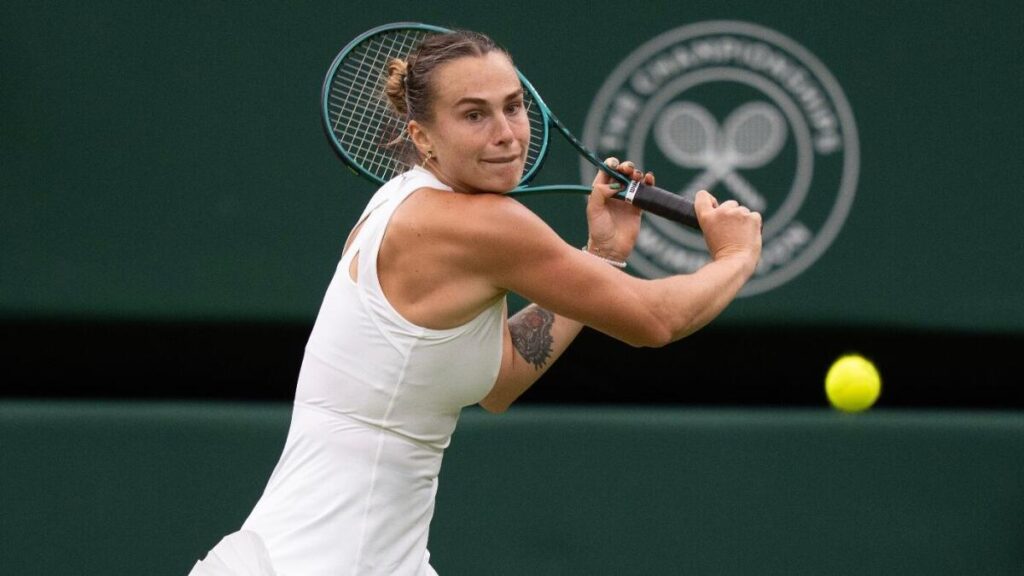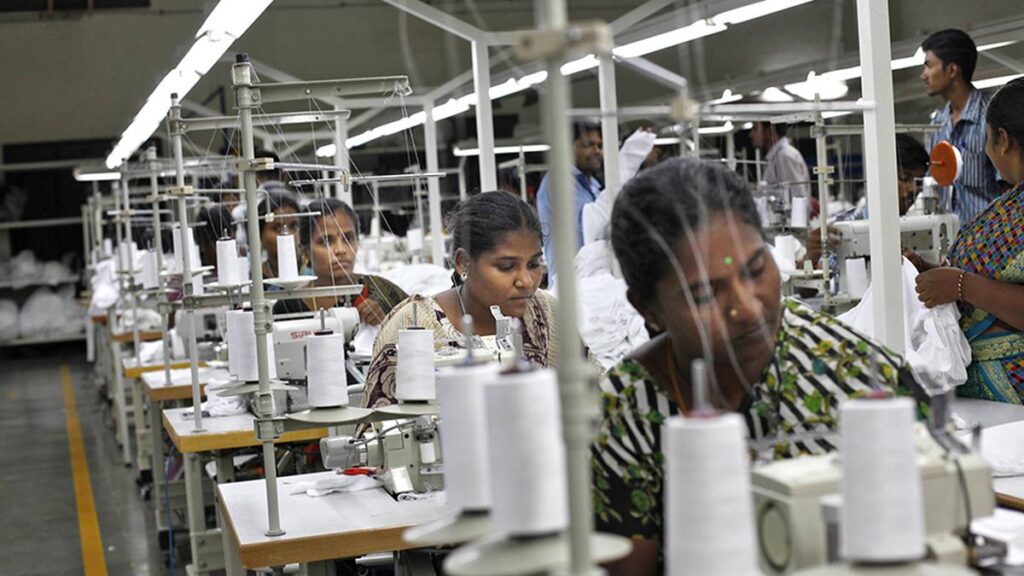Over the last six months, almost on cue as India’s D Gukesh started to make an audacious bid to ascend to the world champion’s throne at the incredulous age of 18, there has been plenty of withering criticism flung in his direction. Almost like his entire chess style has been run through an X-ray machine by a team of unflinching experts determined to find every single problem with it. As chess legend Susan Polgar noted recently, “Some have doubted his worthiness as a World Champion, and believed that he was just a lucky winner against an off-form Ding Liren.”
The latest salvo fired at Gukesh, right before the SuperUnited Rapid and Blitz Croatia tournament, came from Magnus Carlsen, the five-time world champion and the foremost authority on the sport. The world no 1 questioned the reigning classical world champion’s credentials in the faster time controls of rapid and blitz, saying that he would approach the three games against him as if he were “playing one of the presumably weaker players in the tournament”.
His reasoning for this was: “Gukesh hasn’t done anything to indicate he’s going to do well in such a tournament. It remains to be proven that he’s one of the best players in such a format. This is a very strong field that we have. Players like Gukesh have a lot to prove. In the course of 27 rounds, things usually show.”
Throughout the world championship battle in November and December last year, Carlsen cast a constant shadow on the battle between Ding Liren and Gukesh with his scathing analysis of the games and the players’ decisions on the board. At one point, he remarked: “This looks like the second round or third round of an open tournament, not a world championship.” He wasn’t the only former world champion constantly providing no-holds-barred critique of Gukesh’s moves at the Singapore event. Vladimir Kramnik, the curmudgeonly former world champion, famously declared that it was the “end of chess as we know it” on the day Gukesh made history by becoming the world champion at the age of 18.
It must be noted that some of the critique is understandable. Before the recently-concluded event in Zagreb, Gukesh had limited rapid and blitz experience. And each time he ventured out of the comfort zone of classical chess, like at Freestyle Chess events, he suffered. But the criticism of Gukesh seems a little too direct, in-your-face. Maybe a little like the Australian cricket team under Ricky Ponting sledging their opponents.
The teenager himself doesn’t care much, though. As verbal knives continued to be sharpened against him after he became world champion, Gukesh coolly responded to the criticism by saying: “When you reach the World Championship, you are bound to face criticism, and people are free to say whatever they want.”
He’s taken the same approach over the past few months. After Carlsen’s comment about treating him as one of the weaker players in the field at Zagreb, the Indian responded: “I understand why (Carlsen) would think so, my rapid and blitz results in the past have not been great. But nobody knows what’s happening behind the scenes. Only I know that.” Gukesh had a hint of a smile when he said that. Just a day before, he had handed the world no 1 a defeat in the rapid format after all.
Story continues below this ad
Anand faced the heat too
The criticism that Gukesh has been getting in the past one year is nothing new. Just over four decades back, in the start of the 90s, when another young buck from Chennai was on the rise in the sport, he too would get acerbic comments from Soviet Union players, who thought that they had a monopoly on success in the sport.
“In 1991, at my first international tournament, in Reggio Emilia in northern Italy, a Russian grandmaster condescendingly told me I could at best be a ‘coffee-house player’ because I had not been tutored in the Soviet school of chess,” Viswanathan Anand had written in an article for TIME magazine in 2008.
Of course, 1991 was the year that Anand beat Soviet Union stars like Garry Kasparov, Anatoly Karpov, Gata Kamsky and Viktor Korchnoi. He won the Reggio Emilia title as well that year, leaving behind nine Soviet players like Kasparov and Karpov. That Reggio Emilia event started in 1991 and ended in 1992. And over the course of the tournament many things changed. The Soviet Union disintegrated into many different nations. And Anand went from being described as a “talent” by the Soviet players to being called other uncharitable things. Because now the boy from India who played classical games at blitz pace was a problem.
After nine of them saw the only non-Soviet player emerge as the champion at Reggio Emilia, the Soviets pulled out their old playbook: to undermine the player and his achievements. Reggio Emilia was a Category 18 tournament, which back then meant that it was an event with the strongest field ever assembled. After Anand’s win, Karpov tried to talk down the strength of the event itself, by saying, “The thing about categories is that, I never find that very interesting.” A sentiment he probably wouldn’t have shared with the world had he won the event.
Story continues below this ad
As Anand recently recollected in a conversation for the New In Chess podcast, a few months after that event he was in Dortmund for a tournament and had dinner with another non-Soviet player. Anand told him how Korchnoi had been saying that ‘Anand doesn’t think but just plays some tricks’. At this, the other player is said to have remarked, “Korchnoi praises me to the skies. That’s because he beats me all the time. You should enjoy it (the criticism) while it lasts.”
Around this time, when Anand had a good tournament in Brussels, Karpov would even say, “He’s very good but, of course, Kasparov gave him all his preparation.”
Anand said that while people around him were offended by the comments being made about him, he was not too unnerved. “I’d done it myself a few times to others,” he recounted on the podcast.
The change in tone from his rivals did come with realisations. “It was at this point that I realised that ‘talent’ is a word people use to describe you when they want to express good-hearted empathy. It merely reflects that you are not yet a threat to their dominance or their prize fund flow. It’s when they trash-talk you — like they did after my surprise coup in Italy — that you know you’re respected. Maybe even feared,” Anand wrote in his autobiography ‘Mind Master’.
Story continues below this ad
‘Nice guy’
The ‘coffee house player’ jibe — used for someone that’s not professional about the sport and experiments a lot — wasn’t the only pejorative that Anand heard about himself in his earliest days. He’s been paid some creative backhanded compliments. Like when Anatoly Karpov, after the 1998 World Championship, told a journalist, within crystal-clear earshot of the Indian and his wife Aruna: “Vishy’s a nice guy. But he just doesn’t have the character for a big win.”
This “nice guy” stereotype is also something that all Indian world-beating prodigies like Gukesh, R Praggnanandhaa and Arjun Erigaisi today can be accused of. Fabiano Caruana recently noted how the new generation of players (spearheaded by the Indian trio) were playing “at their level, but he didn’t find them scary yet.” (As an aside, Caruana, a player with the most stable quality of chess without too many fluctuations recently lost thrice in three games to Gukesh at the SuperUnited Rapid and Blitz tournament).
In his autobiography, Anand spoke about this ‘nice guy’ stereotype: “There are people who thrive in an atmosphere of combat, tension and conflict, but that hasn’t been my strongest suit. Generally, my best results come when I am happy and my mind is not occupied with external diversions. This has perhaps led people to assume I am a pushover,” Anand wrote.
Anand also pointed out that when he became world champion in Tehran in 2000, the chess world was “dismissive” of his first world title. “I wasn’t entirely certain whether they adopted this stance to get me ruffled or they genuinely believed that I was undeserving of this distinction.”
Story continues below this ad
All of these emotions — being praised as a talent and then being trash-talked publicly, avoiding verbal conflict, seeing the world be dismissive of his success — that Anand experienced in the early 90s, Gukesh is probably feeling now. And just like Anand was advised in 1992, the best thing for the teenager to do is to enjoy the criticism while it lasts.







